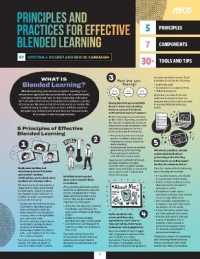Full Description
Who tends to volunteer and why? What causes attract certain types of volunteers? What motivates people to volunteer? How can volunteers be persuaded to continue their service? Making use of a broad range of survey information to offer a detailed portrait of the volunteer in America, Volunteers provides an important resource for everyone who works with volunteers or is interested in their role in contemporary society.
Mark A. Musick and John Wilson address issues of volunteer motivation by focusing on individuals' subjective states, their available resources, and the influence of gender and race. In a section on social context, they reveal how volunteer work is influenced by family relationships and obligations through the impact of schools, churches, and communities. They consider cross-national differences in volunteering and historical trends, and close with consideration of the research on the organization of volunteer work and the consequences of volunteering for the volunteer.
Contents
Preface
Acknowledgments
Part 1. An Introduction to Volunteering
1. The Importance of Studying Volunteering
2. What Is Volunteering?
Part 2. Subjective Dispositions
3. Personality
4. Motives
5. Values, Norms, and Attitudes
Part 3. Individual Resources
6. Socio-Economic Resources
7. Time and Health
8. Gender
9. Race
Part 4. The Social Context of Volunteering
10. The Life Course: The Early Stages
11. The Life Course: The Later Stages
12. Social Resources
13. Volunteer Recruitment
14. Schools and Congregations
15. Community, Neighborhood, City, and Region
16. Cross-National Differences
17. Trends in Volunteering
Part 5. The Organization of Volunteer Work
18. Volunteer Tasks
19. The Volunteer Role
Part 6. The Consequences of Volunteering
20. Citizenship and Prosocial Behavior
21. Occupation, Income, and Health
22. Conclusion
Appendix
Notes
References
Index








